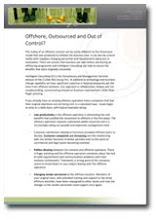Employees are yet to feel the effects of the economic recovery in their pay packets, according to the CIPD’s annual Reward Management Survey. Despite the fact that UK growth was the strongest it has been since 2007 in the last quarter, there is still no sign that this will be reflected in pay increases or extra bonus.
This is not common practice. Historically, more jobs and more vacancies mean that employers offer higher wages in order to attract and retain talent. So why the step away from tradition? What’s different? Recent research from the Office for National Statistics shows that when the economy was starting to get back on its feet in 2013, average earnings were rising at an annual rate of 1%. Now, in a state of dramatic growth in all other areas of the labour market, salaries are rising at just 1.7%.
Charles Cotton, Performance & Reward Adviser at the CIPD, believes this is in part down to the productivity puzzle as well as a steady supply of labour which has lifted the pressure from employers to increase starting salaries. Those benefiting most from this stronger economy, according to the CIPD’s report, are the manufacturing, production and private sector services. Unfortunately, for the traditionally less competitive, such as community and not-for-profit organisations, the slow wage growth is being felt intensely. This has led experts to believe that a return to the pre-recession average earnings growth of 4.5% is a long way off.
Many leading economists argue that a continued lack of wage growth could leave the economy vulnerable to setbacks, especially as growth has once again become overly dependent on consumer spending and low inflation.
Cotton noted that “a number of external factors means that it’s not as simple as increasing pay for most sectors... what’s important is that businesses ensure they’re regularly monitoring, evaluating and comparing pay.” On top of this, pay decisions need to be shared and communicated with the people they affect, “to put earnings into context, particularly where they might not be increasing”.
Which is exactly what the government is now proposing; from the first half of 2016, companies with more than 250 employees will have to produce gender pay audits. Hopefully, the transparency of these reports will help identify where exactly the gap is happening, in order to begin closing it. There’s a long way to go, but the long-term effects of this could well initiate pay equality, and therefore raise salary statistics across the board.
Of course, salaries are still rising, albeit at a slower rate. Cotton said that this “may be a reflection of structural changes towards the knowledge-based economy we’ve been seeing… If organisations continue to reward the ‘how’ as well as the ‘what’, it may well attract and retain more desired talent”. In the meantime however, as the CIPD points out, stagnant wages will be the concern of many who worked hard throughout the recession and want to see the fruits of their labour sooner, rather than later.








No comments:
Post a Comment